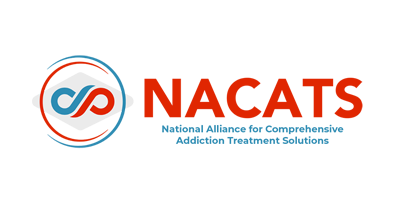
The opioid crisis has made employee drug screenings a lot more popular than they used to be. This can be nerve-wracking for some, especially if you’re applying for your dream job. You don’t use illegal substances. You’re not on prescription opioids. But the test tells a different story. Why? And what can you do?
Surprisingly, this isn’t as uncommon as you might think. Unfortunately, this kind of thing happens, and when it does, you risk losing the job. The good news? You can prepare and prevent this from happening. At ReVIDA® Recovery, we’re heavily invested in our community. In other words, we’re heavily invested in you. Let’s talk about some of the ways you can prevent a false positive drug test for opioids like fentanyl.
Table of Contents
What Can Cause a False Positive for Fentanyl
A common kind of test used for employee drug screenings is called an immunoassay. These tests look for foreign molecules in your body, or antibodies that have bonded to those molecules. This kind of test works well for many facilities because it’s quick, easy, and inexpensive. Unfortunately, it doesn’t always work the way it’s supposed to.
Because immunoassays are looking for bonded antibodies, they can also pick up things like nutritional supplements, over-the-counter medications, and even some types of food. They’re essentially seeking out anything that is “out of the ordinary” and reporting it. Sometimes that comes up as a false positive for opioids like fentanyl. Yes, the creators of these employee drug screen tests are aware of this, and yes, they work to modify the sensitivity so it doesn’t provide false positives. Unfortunately, that isn’t always enough. This type of test will always come with the risk of a false positive.
Steps to Take When You Suspect That Your Fentanyl Results Are False Positive
First and foremost, if you are taking supplements or other medications regularly, it’s imperative to inform the person who is testing you before your test. You also need to know what type of test you’re taking. If it’s an immunoassay test, preparation is especially important.
That isn’t always enough. Sometimes, the people who are performing the testing are overworked, tired, or distracted through no fault of their own. Make sure you see them write down your information, including the list of the supplements and medications you take. If you’re still not comfortable, inform someone else on the staff. Having 2 staff members aware of your medications may seem like overkill, but it is a way to be proactive. That way, if you believe you have a false positive, you can refer to medical personnel. Communication is key.
If you take the test and receive a false positive, inform the medical staff that you’d like to take the test again. If the results have already been reported to your potential employer, you can speak to them and let them know it was a false positive and that you’re testing again.
Is It Recommended to Stop Taking Medication Before Doing a Drug Test?
There are certain medications that are more likely to cause a false positive for opioids on a drug test. Some of these include antipsychotics like quetiapine (Seroquel®), antibiotics like levofloxacin (Levaquin®), allergy medications like diphenhydramine (Benadryl®), and even poppy seeds.
If you are taking a prescription medication, never stop taking it to avoid a false positive on a drug test. First of all, discontinuation of your medications isn’t going to guarantee they’ll be out of your system in time for your drug test. Additionally, it can be dangerous to stop taking them. Medications like quetiapine (Seroquel®) can cause serious side effects when they’re suddenly stopped. Any time you’re taking a prescription medication, you need to talk to your doctor before you stop taking it.
You can avoid taking diphenhydramine or eating poppy seeds before an employee drug screening, but the chances of false positives for opioids like fentanyl are very small. If you’re concerned, talk to your primary care doctor before your test. Also, remember to inform the staff who is in charge of administering your drug test.
Getting Treatment for Fentanyl Use Disorder
If you’re about to take an employee drug screen for a job you’d love to have but you’re managing a fentanyl addiction, you’re not alone. 70,000 people in Tennessee are also managing an opioid addiction. The good news is that there is always hope. Opioid use disorder is a lonely road, but your recovery doesn’t have to be. The dangers of fentanyl aren’t worth the risk of not getting your dream job – or losing your life.
A ReVIDA® Recovery, we have seen firsthand how effective evidence-based recovery for fentanyl addiction can be. It doesn’t matter how long you’ve been taking fentanyl or how impossible it feels to stop right now – recovery is always possible. Let’s talk about some of the treatment options we offer here that could be right for you.
Medication-Assisted Treatment (MAT)
While you’re here for MAT, you’ll be closely monitored by a compassionate and knowledgeable staff. Medications are available that can help in alleviating fentanyl withdrawals and guiding you safely into recovery. You’ll also have access to resources that can help you on your journey moving forward, including individual counseling, group counseling, and support groups. In an MAT program, we use medications alongside traditional therapy to guide you away from opioids and into a healthy life of recovery.
You’ll also have the option to move forward with our outpatient treatment program. If a higher level of care is warranted, we will provide referrals for a local inpatient or residential treatment program. Your clinician will go over all of your options to set you up for success.
Buprenorphine (Suboxone®) Treatment
Medication-assisted treatment, or MAT, is a safe and evidence-based way to treat OUD. At ReVIDA® Recovery, we support the use of buprenorphine (Suboxone®) because it has been proven to reduce cravings while working to prevent relapse. To receive buprenorphine (Suboxone®) treatment, you will have to be opioid-free for 24 hours.
Outpatient Rehab Services
We believe that both individual and group therapy are critical components in the treatment of OUD – especially if you’re looking for long-term recovery. This is a safe and supportive space where you will learn how to manage your triggers and create healthy coping mechanisms. Our behavioral healthcare team is composed of licensed therapists, certified counselors, care coordinators, and peer recovery specialists who are standing by and ready to help. If we can treat your addiction where it started, at its roots, your chance of recovery is greater than if we were to simply treat the side effects of fentanyl withdrawal.
At ReVIDA® Recovery, we’re standing by to help you reclaim your life from fentanyl. Recovery is possible, and you can start your journey to wellness whenever you’re ready. To learn more or to schedule an appointment, please call us today at 423-631-0432.
FAQs
What drugs cause false positives with fentanyl?
All illicit opioids will show up on an employee drug screening. There are no other types of illicit drugs that will cause a false positive for fentanyl.
What medications can cause false positives?
There are certain medications that are more likely to cause a false positive for opioids on a drug test. Some of these include antipsychotics like quetiapine (Seroquel®), antibiotics like levofloxacin (Levaquin®), allergy medications like diphenhydramine (Benadryl®), and even poppy seeds.
What to do if you believe your results are false positives?
First and foremost, if you are taking supplements or other medications regularly, it’s imperative to inform the person who is testing you before your test. You also need to know what type of test you’re taking. If it’s an immunoassay test, preparation is especially important.










